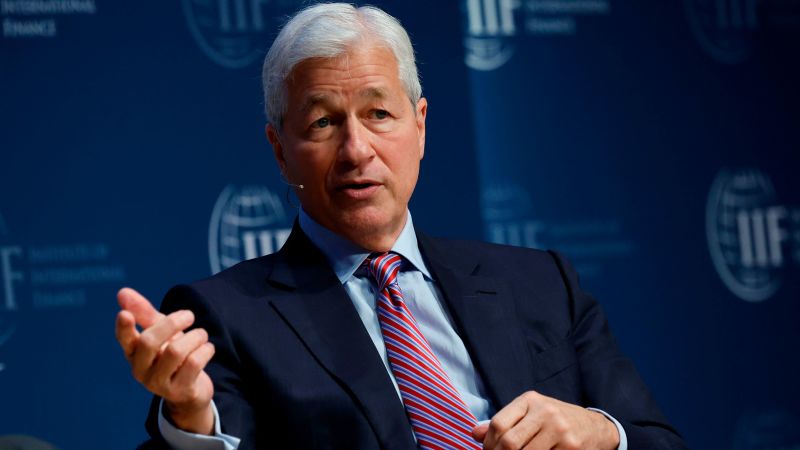JPMorgan Chase CEO Jamie Dimon is raising the specter of the war on inflation getting worse before it gets better.
In an interview with the Times of India published on Tuesday, Dimon warned that if the Federal Reserve has to keep raising interest rates to cool inflation, it will be painful.
“I am not sure if the world is prepared for 7%,” Dimon told the paper.
He made the comments while attending a JPMorgan investor summit in Mumbai, India.
The comments added to ongoing nervousness on Wall Street, which has been fueled in large part by concerns about the Fed keeping interest rates high for longer. In recent trading, the Dow was down nearly 300 points, or 0.9%. The Nasdaq lost 1.2%.
Since early last year, the Fed has rapidly raised interest rates from near zero to just over 5%.
“I ask people in business, ‘Are you prepared for something like 7%?’ The worst case is 7% with stagflation. If they are going to have lower volumes and higher rates, there will be stress in the system,” Dimon said. “We urge our clients to be prepared for that kind of stress.”
The JPMorgan CEO quoted legendary investor Warren Buffett, who has famously said that it’s “only when the tide goes out that you know who’s been swimming naked.”
In other words, a downturn exposes who has been taking too much risk.
Dimon cautioned that another two percentage points of rate hikes would be “more painful” than the last two, adding: “That will be the tide going out.”
While Dimon is floating the risk of 7% rates, that’s not something Fed officials themselves have publicly endorsed.
Last week, Fed officials released projections that pencil in just one more interest rate hike this year before rate cuts next year. The futures market is pricing in little chance that rates go to 6%, let alone 7%.
In the interview with the Times of India, Dimon addressed the string of US bank failures earlier this year. JPMorgan acquired First Republic Bank as it collapsed.
“I do not think we want a system where no bank ever fails. So, having a bunch of failures is not a terrible thing,” Dimon said. “But if it causes havoc in the system, we have to modify regulations to stop that from happening.”
Read the full article here













Leave a Reply